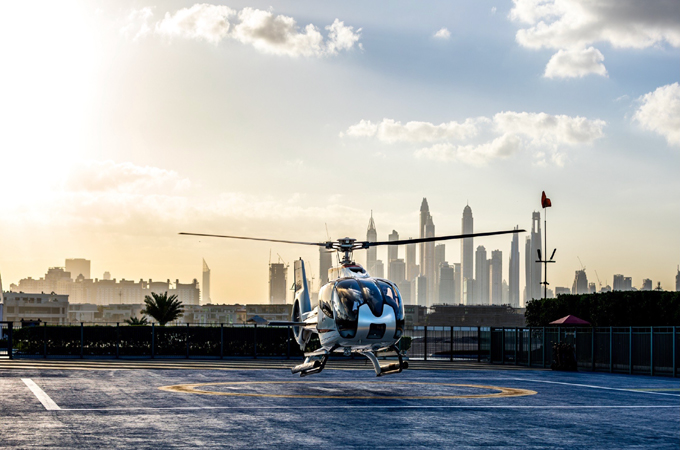The first test flight to demonstrate the potential for converting Methanol to SAF (Sustainable Aviation Fuel) has taken place in Dubai on the sidelines of COP28 in the UAE. Masdar, TotalEnergies, the UAE General Civil Aviation Authority, Airbus, Falcon Aviation Services and technology licensor Axens all contributed to the successful flight.
The Alcohol-to-Jet Synthetic Paraffinic Kerosene pathway (ATJ-SPK) has been certified in 2016 as meeting international standards for jet fuel, however, Methanol is not in the list of specified alcohols.
The flight, which used a blend of aviation fuel made from olefins, will help support the certification of this new pathway for SAF production from methanol.
With the potential to be derived from renewable electricity, the new pathway could lead to eSAF, an essential lever to meet the challenge of producing SAF worldwide to decarbonize aviation.
“The launch of the (Dubai Framework) for Sustainable Aviation Fuel, represented an important step on the path towards a more sustainable future in aviation. This test flight demonstrates the shared ambition of Masdar and TotalEnergies to advance the development of SAF and provide another option in ongoing efforts to decarbonize the aviation industry. SAF has huge potential for reducing the hard-to-abate aviation sector’s carbon emissions and Masdar is proud to support the development and growth of this sector. It is a sign of our commitment that we have forged several strategic partnerships in this area,” said Mohamed Jameel Al Ramahi, CEO of Masdar.
"TotalEnergies is delighted to have initiated this scouting effort together with Masdar. As industry and energy companies, our collective job is to work on the next generation of clean aviation fuels that could complement SAF currently produced from used cooking oil. This novel pathway to jet, through e-SAF, is critical to support the decarbonization of the aviation industry,” said Patrick Pouyanné, Chairman and Chief Executive Officer of TotalEnergies.--OGN/TradeArabia News Service































